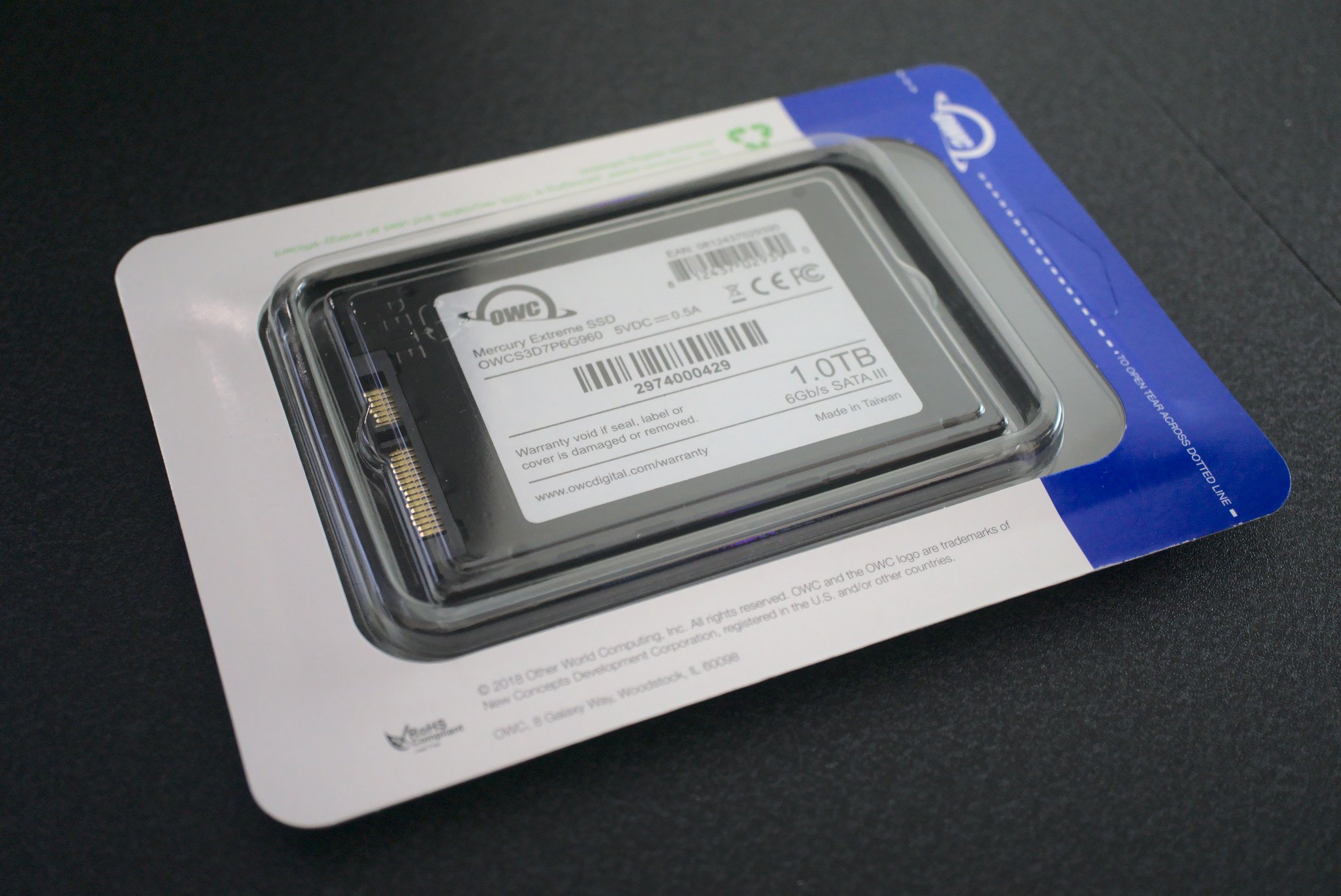SSD vendors are slowly working together to sign mechanical drives (HDD) to the dustbin of history. OWC's Mercury Extreme Pro 6G series is yet another fine line-up of flash storage that's both well priced and has enough performance for daily use. If you're looking for a more affordable solution to M.2 NVMe drives, this 1TB Pro 6G from OWC should be on your shortlist, at least on paper.
Capacities range between 240GB up to a whopping 4TB, and marketed transfer rates are right up there with the best from Samsung for SATA III. For this review, OWC shipped us a 1TB SSD to see if this series of SSDs are all that the company claims it to be. We've rounded up the best SSD for your PC, so let's see where this fits.
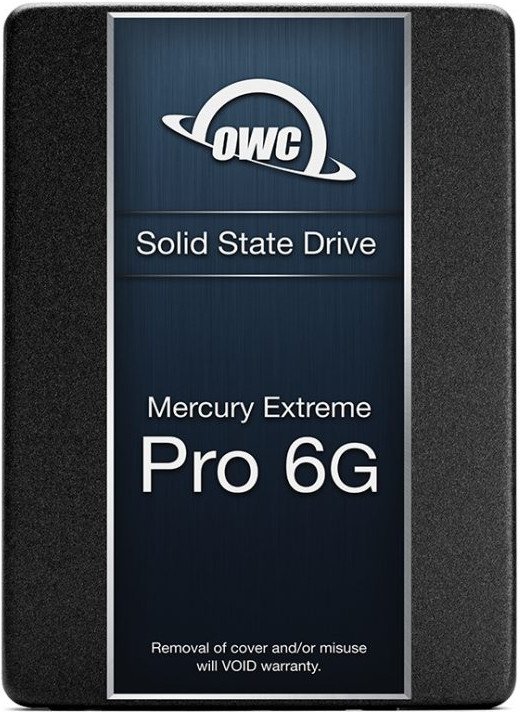
Bottom line: Proof that SSD mass storage is the future, and it's here today.
For
- Good overall performance
- Capacities up to 4TB
- Five-year warranty
- Well priced
Against
- Lack of an 8TB capacity option
- SATA III slower than PCIe NVMe SSDs
OWC Mercury Extreme Pro 6G specifications
| Category | Spec |
|---|---|
| Capacity | 240GB, 480GB, 1TB, 2TB, 4TB |
| Interface | SATA 6Gb/s |
| Sequential read | Up to 559 MB/s |
| Sequential write | Up to 527 MB/s |
| Random access | Up to 60,000 IOPS |
| NAND | Synchronous MLC NAND3D NAND (480GB and 1TB only) |
| Controller | SandForce SF2281Silicon Motion SM2246EN (480GB and 1TB only) |
| Warranty | Five years |
OWC Mercury Extreme Pro 6G vs. the competition
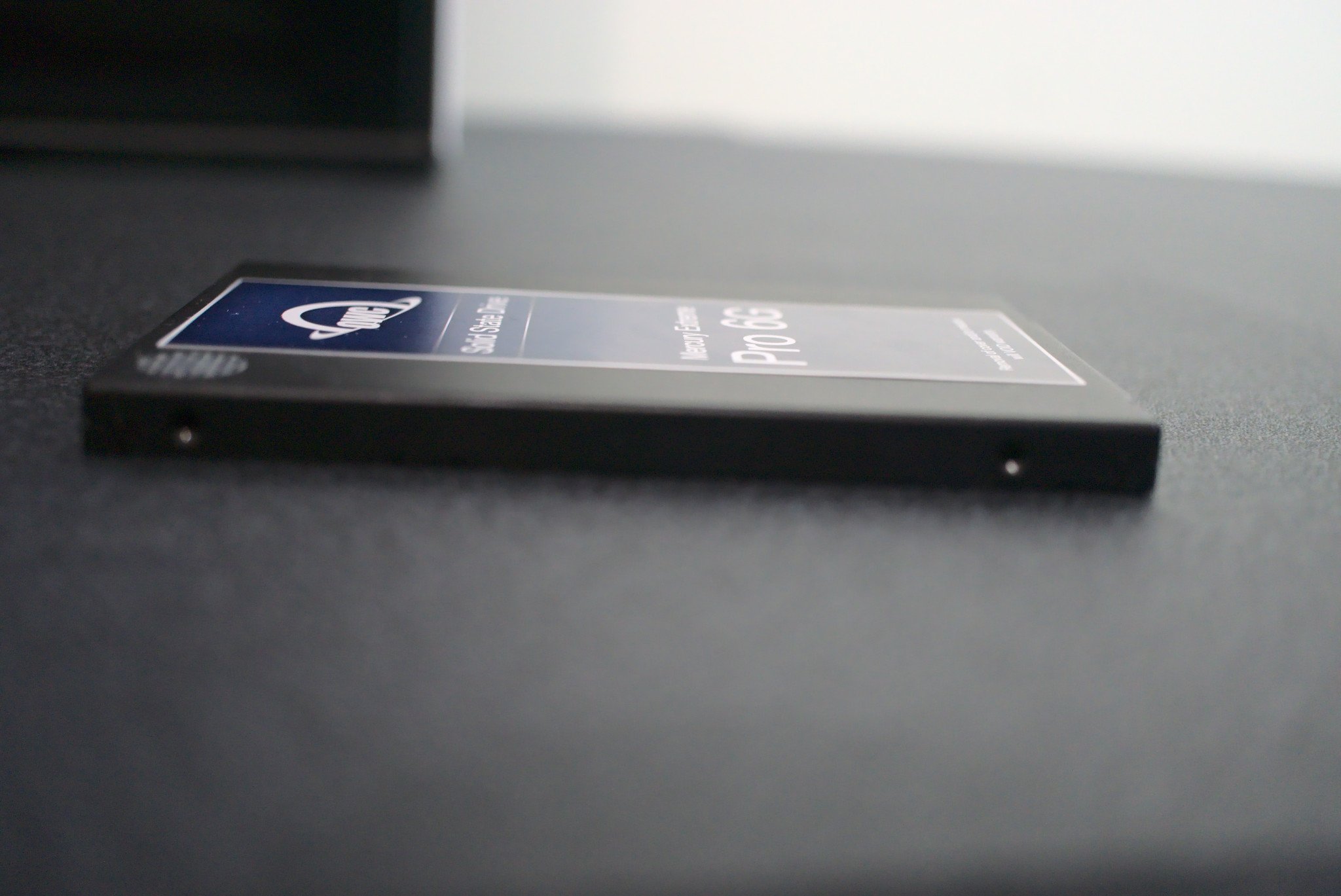
OWC's Mercury Extreme Pro 6G range comes in five capacities, though the 1TB model is what we'll be focusing on for this review. PErformance across the board should be fairly consistent, albeit for a few minor differences. The OWC Mercury Extreme Pro 6G is a SATA III SSD, which is what we'll be comparing it against from competing vendors.
| Header Cell - Column 0 | OWC Mercury Extreme Pro 6G | Samsung 870 QVO | Samsung 860 EVO | WD Blue | Crucial MX300 |
|---|---|---|---|---|---|
| Read | 559 MB/s | 560 MB/s | 550 MB/s | 560 MB/s | 530 MB/s |
| Write | 527 MB/s | 530 MB/s | 520 MB/s | 530 MB/s | 510 MB/s |
Price-wise, the Mercury Extreme Pro 6G from OWC starts from $68 for the 240GB SSD and tops out at $479 for 4TB. Comparatively, the SSD range is competitive with what's available in the market.
OWC Mercury Extreme Pro 6G performance
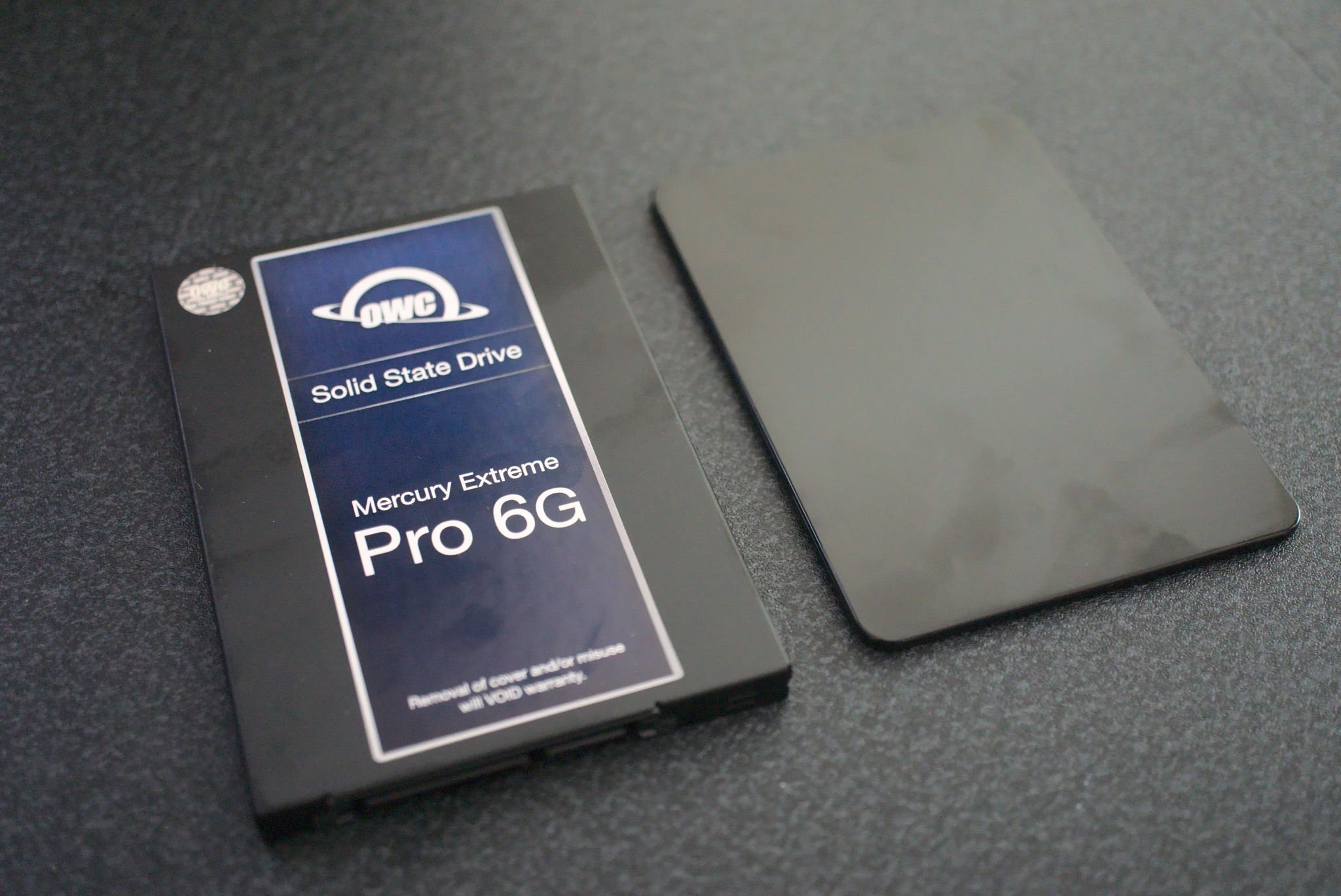
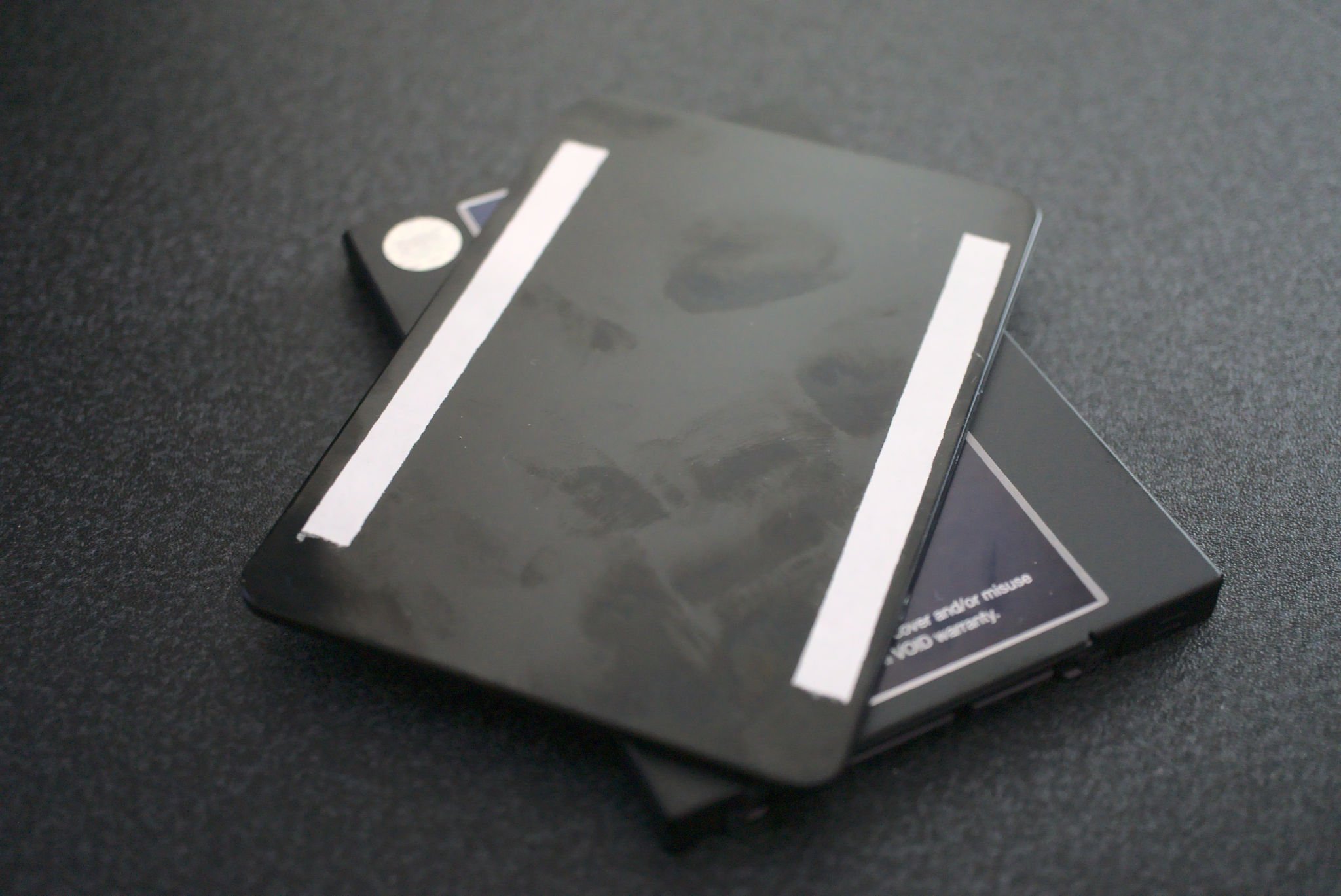
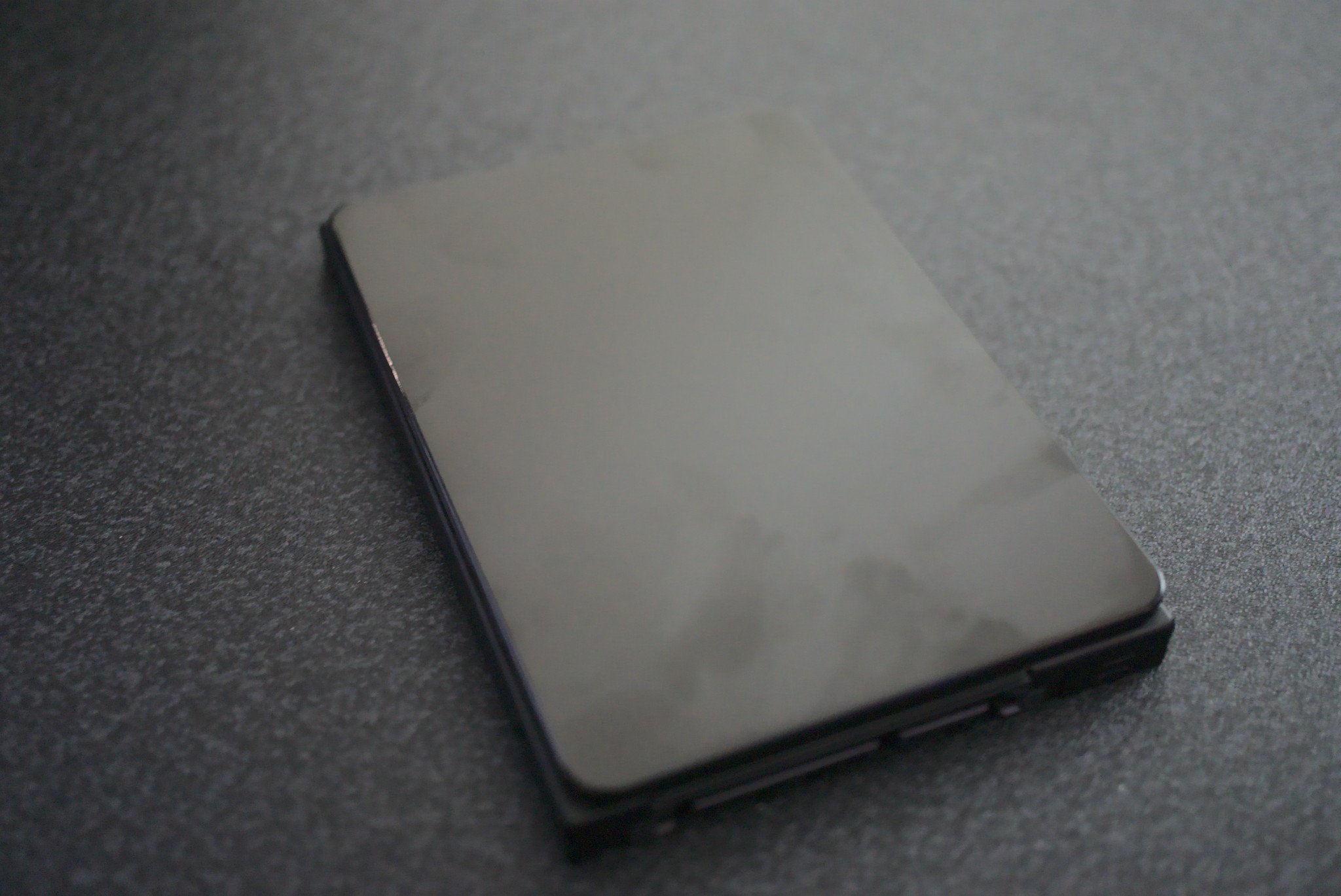
OWC's range of Mercury Extreme Pro 6G is perfect for storing games or upgrading your laptop.
The range of SSDs is full of good-looking drives, and they even come with a cover plate to be stuck atop of the drive itself, covering the stickers and other elements for a cleaner look. It's positive to see OWC go all-out for those who may want to have their SSDs on show. The entire casing is metal, while the cover itself is plastic.
To test this SSD out, I installed it inside a test rig with an AMD Ryzen 9 3900X CPU as well as 32GB of DDR4 3200MHz RAM. The SSD was benchmarked and used for file storage. Results were as expected for a SATA III SSD in this class. If you're still on an HDD inside your laptop or desktop PC, this is going to be one amazing upgrade.
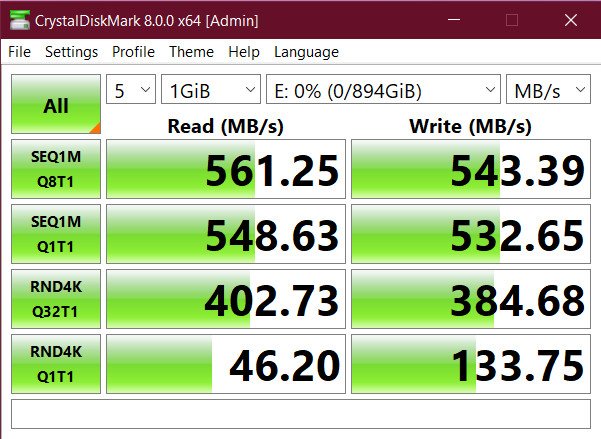
The Crystal benchmark brought in figures that closely resemble what's on the marketing material for the range of SSDs. The 1TB isn't the range-topper, so I imagine the performance is ever-so-slightly better on the 2TB and 4TB models, but for the price, this is a good deal.
561MB/s and 543MB/s for read and write, respectively. Not too bad at all! It's almost in range of more expensive Samsung drives, though neither is a match for PCIe 4.0 NVMe units you can buy. Still, it's as good as you can expect from a 2.5-inch SATA III SSD.
Should you buy the OWC Mercury Extreme Pro 6G?
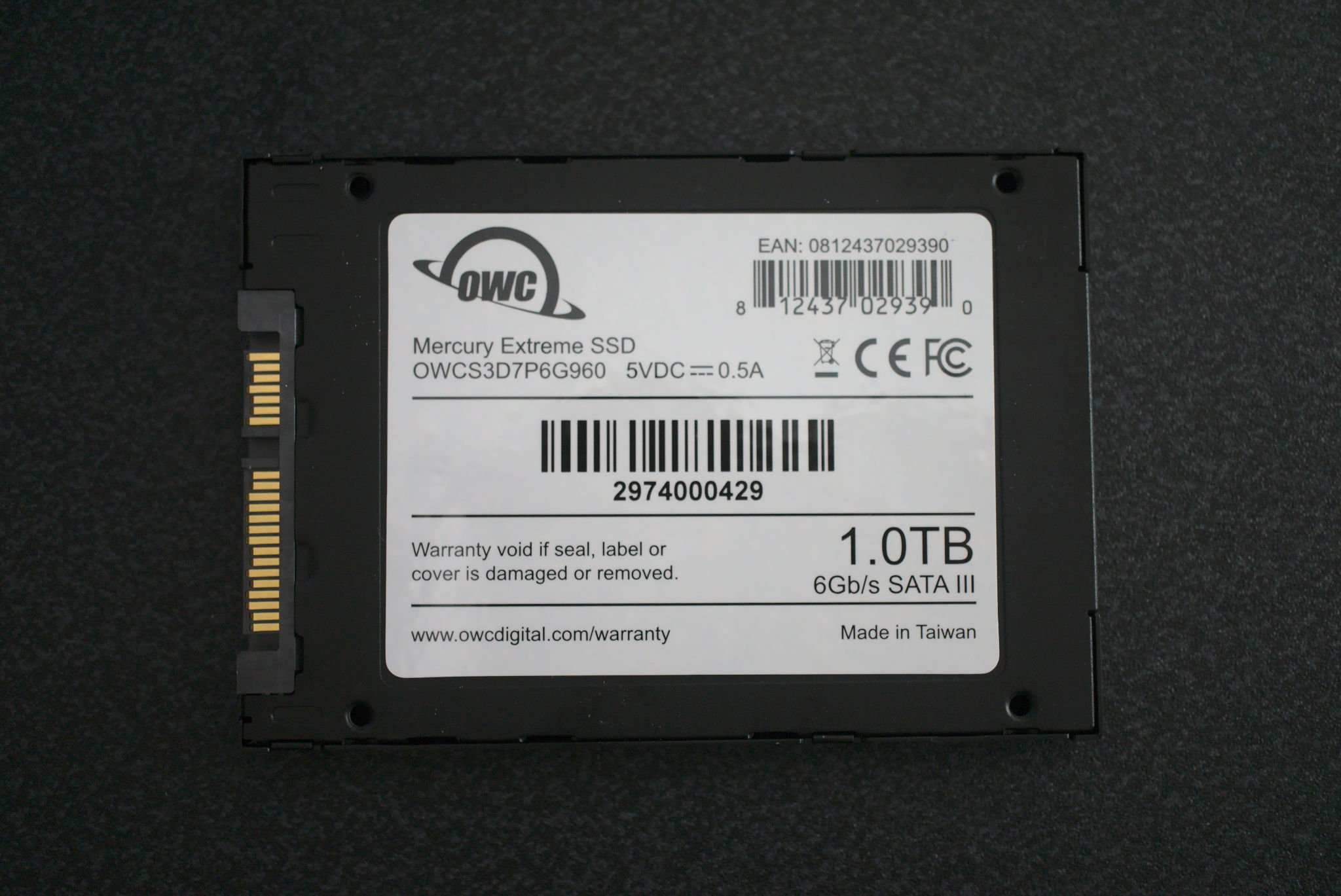
OWC's Mercury Extreme Pro 6G are good 2.5-inch SSDs. They're not class-leading and will not give Samsung's premium range a run for its money, but for the average laptop or desktop PC that needs a boost from flash storage, you could do much worse than these SSDs. The speeds are solid, so too are the operating temperatures and other parameters.
There are plenty of capacities to choose from, though I'd love to see an 8TB to give those with beefy HDDs the opportunity to upgrade to flash storage and throw away those spinning boxes. Still, that five-year warranty is impressive, and the pricing isn't too bad, coming in at about $/GB for the 240GB model.

Rich Edmonds was formerly a Senior Editor of PC hardware at Windows Central, covering everything related to PC components and NAS. He's been involved in technology for more than a decade and knows a thing or two about the magic inside a PC chassis. You can follow him on Twitter at @RichEdmonds.
